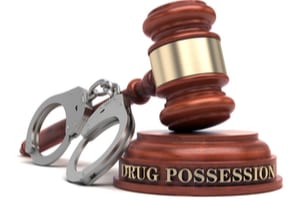
How Serious is a Cocaine Possession Charge in Florida?
Both the Controlled Substances Act (CSA) and Florida Statute 893 consider cocaine to be a substance that has a high potential for abuse or dependence. There has been a 57.1 percent increase in cocaine-related deaths between 2015 and 2016 in Florida. Cocaine use has steadily grown because of its short-term stimulating euphoric physiological effects; however, long-term, these effects are dangerous. Being found in possession of cocaine can put you in an even worse situation outside of a possible drug addiction.
Possession of cocaine can cause severe long-term consequences that can negatively impact your life. With any drug-related crime, penalties are determined by factors such as how much cocaine was in your possession and if you had the intention of distributing it. Either way, you’re likely to be held accountable in some way, therefore you should start working with a criminal defense lawyer to help you build a defense strategy.
Speak to a drug defense attorney as soon as possible after a charge of cocaine possession. At the Umansky Law Firm, we believe everyone deserves a second chance, and that your life shouldn’t be defined by one mistake. We will work diligently to get your cocaine charges reduced or eliminated and help you move forward with your life.
How are Drugs Scheduled in Florida?
Federal and state laws categorize controlled substances into five different classifications or “schedules.” When determining these schedules, the following factors are considered:
- If the substance could cause dependence when abused,
- The probability of abuse compared to other substances, and
- If the substance is used as medical treatments
The five drug schedules in Florida are identified as the following:
- Schedule I Drugs: These are the most dangerous and least use for medical purposes. Some drugs that are Schedule 1 drugs are Heroin, Marijuana, and Ecstasy.
- Schedule II Drugs: These are substances with a high risk of abuse and rarely used in medical treatment. Cocaine falls under this schedule, as well as, Opium, Oxycodone, and Methamphetamine.
- Schedule III Drugs: These are substances with a moderate risk of abuse and are used in medical treatment. Some drugs that are Schedule III drugs are Testosterone, Androsterone, and Clonazepam.
- Schedule IV Drugs: These are substances with a low potential for abuse and are widely used medical practices. Common drugs include Xanax.
- Schedule V Drugs: These are substances with very low risk of abuse and are used in medical treatment. Common examples of drugs are Tylenol with codeine, Robitussin, and Lyrica.
What Does it Mean to be in the “Possession” of Cocaine?
Florida Statute 893.13(6)(a) explains that an individual who is found to be in “actual” or “constructive possession” of less than 28 grams of cocaine has committed a third-degree felony. This is punishable by 5 years in prison or probation and/or a fine of $5,000, along with driver’s license revocation for up to two years.
If found to be in possession of more than 28 grams, a drug trafficking charge could be triggered and you could be sanctioned to 30 years in prison or probation, as well as a $10,000 fine. Some factors that will determine your penalties and other consequence you may face include:
- Your criminal history
- The jurisdiction or court you’re in
- Judge or prosecutor on your case
To be in “actual possession” of cocaine means that you either had the substance in your hand or in a container, or the substance was within reach and in your control. If the substance was not directly found on you, then “constructive possession” would have to be established. This is when you know the substance is in your presence and you have the capacity to control it.
For the prosecution to be able to prove that you were in possession of cocaine, they must be able to prove the following:
- You were in either actual or constructive possession of a substance;
- Cocaine was the substance; and
- You were aware of the presence of cocaine
Handling these types of charges alone will be extremely difficult to do because prosecution will employ aggressive tactics to attain a drug conviction. An experienced drug offense attorney can help construct a defense strategy that will get you the best results.
Possible Defense Strategies to Possession of Cocaine
If you are being charged with a possession or trafficking charge, do not wait to seek legal counsel. These offenses are severely punishable; therefore, you need to act carefully and quickly to preserve your legal rights. Some possible defenses against cocaine possession charges including:
- Police performed an unlawful search
- The cocaine belonged to someone else and you were not aware of its presence
- Insufficient evidence to hold the charge
Contact an Orlando Drug Offense Attorney
No matter what type of drug possession charges you’re facing, the ramifications are likely to be severe. There are several defenses that can be used to dispute your cocaine possession charge, so it is highly recommended to consult a criminal defense attorney first. These types of cases are complex and must be examined early on to create the most successful defense strategy available.
The Umansky Law Firm stresses the importance of knowing your rights, and we’ll forcefully fight for those whose rights have been infringed. With more than 100 years of combined experience in criminal law, our lawyers understand the tactics that the state will use to get a conviction. Call Umansky and his team of trusted attorneys to represent you in your drug offense case in Orlando. Call our office or complete a contact form for a free consultation.



